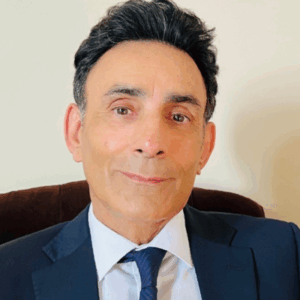


Gutting out withdrawal at home can bring dangerous spikes in blood pressure, dehydration, or even seizures. Kentucky logs roughly 1,380 overdose deaths each year—about 32.5 per 100,000 residents—showing how high the stakes really are.
Our accredited drug rehab in Louisville, KY, refers clients to trusted medical detox partners for stabilization, then transitions them into Partial Hospitalization, Intensive Outpatient or standard Outpatient care on our campus.
This staged process protects physical health, restores mental clarity, and sets the stage for deeper therapeutic work.
The DSM-5 defines substance-use disorder as compulsive drug seeking that continues despite obvious harm. As tolerance grows, the brain demands larger or more frequent doses just to feel normal.
When the supply stops, withdrawal—anything from chills and nausea to severe anxiety or tremors—pushes the cycle forward.
Effective drug treatment in Louisville tackles three fronts at once: easing physical dependence, rewiring thought patterns that trigger cravings, and strengthening daily routines to guard against relapse.
Louisville Addiction Center weaves all three elements into personalized plans that respect each client’s history, health needs, and goals for recovery.
Despite a robust network of drug rehab facilities in Kentucky, the Commonwealth still wrestles with alarming overdose figures.
1,380 Kentuckians lose their lives to drug overdoses each year, according to the 2023 National Institute on Drug Abuse report.
That equals 32.5 deaths per 100,000 residents—well above the most recent national average of 22.3.
Jefferson County (home to Louisville) records roughly 37 overdose deaths per 100,000, making up nearly 15 percent of all fatal overdoses statewide.
More than 70 percent of opioid-related fatalities involve fentanyl or a fentanyl analog.
Self-reported non-medical prescription drug use runs about 7 percent in Louisville, compared with a 5-percent statewide rate.
These numbers highlight why timely, professional intervention remains critical for individuals, families, and the broader community.
Although many drug rehab facilities in Louisville, KY, focus on a single substance, Louisville Addiction Center is equipped to address multiple forms of addiction under one coordinated treatment plan.
Illicit labs press this synthetic opioid into counterfeit pills or mix it with heroin, making micro-doses lethal. Louisville Addiction Center pairs medication-assisted therapy with trauma-informed counseling once clients complete a hospital-based detox.
Heroin’s rapid rush soon gives way to severe dependence and repeated overdoses. Post-detox, clients engage in cognitive and dialectical behavior therapies to rebuild routines and address relapse triggers.
Powerful surges of energy quickly erode physical health, causing heart damage, tooth decay, and psychosis. Evidence-based therapies for meth addiction focus on impulse control, sleep restoration, and dual-diagnosis care for co-occurring anxiety or mood disorders.
Whether snorted, smoked, or injected, cocaine elevates heart rate and blood pressure, heightening stroke risk. Louisville Addiction Center emphasizes relapse-prevention planning and stress-management skills to curb binge-crash cycles.
Misusing pain relievers, sedatives, or stimulants can start with a legitimate prescription and spiral into doctor-shopping or street purchases. Treatment combines medication monitoring and safe-taper protocols with lifestyle coaching to prevent future misuse.
Medications such as Xanax or Valium soothe anxiety but provoke dangerous rebound symptoms if stopped abruptly. After a medically managed taper elsewhere, clients receive ongoing psychiatric oversight and coping-skills training to stay benzo-free.
Are you wondering if professional support is really necessary?
These red flags suggest it’s time to consider drug rehab Louisville, KY programs.
If any mix of these signs feels familiar, a structured treatment plan can stop the cycle before consequences deepen.

Detox is the medically managed clearing of drugs or alcohol from your body; rehab is the longer-term counseling and skill-building that follows. During detox, the brain and nervous system rebound after months or years of chemical suppression, and that rebound can be dangerous.

When cravings keep overruling your best intentions, sheer willpower rarely carries you to the finish line. That’s why drug treatment in Louisville at Louisville Addiction Center pairs accredited clinicians with evidence-based therapies, turning the turmoil of active use into a clear, step-by-step path to lasting sobriety.

Our partial hospitalization program (PHP) is the most common level of care that we have to offer. Our PHP program for substance abuse treatment in Louisville, KY offers intensive care as well as a flexible schedule that will allow our clients to remain plugged into normal life. During our PHP in Louisville, Kentucky, our clients are in our program for 30 days.

Following PHP, clients might need to continue treatment while getting back to everyday life. Our intensive outpatient program (IOP) offers treatment for several hours throughout the week, yet with more flexibility than PHP. That way, clients can begin to use the skills they learn while tending to other obligations, like family, school, or work.

The outpatient program during Louisville rehab is the least restrictive program we offer. Often, clients meet with a therapist or group for about one hour per week. Most clients in our outpatient program have the skills needed to stay healthy outside of treatment. Yet, they still need to refine their recovery skills in the real world with professional support and guidance.

At Louisville Addiction Center, we offer rehab for veterans in Louisville, Kentucky. As a veterans addiction treatment center, we provide TRICARE addiction treatment for veterans. Veterans have unique needs when it comes to substance abuse and mental health disorders. We understand that and offer specialized treatment.
Comprehensive drug treatment for Louisville residents relies on combining medical insight with whole-person healing. Louisville Addiction Center layers several evidence-based therapies so progress in one area reinforces growth in the next.

For those looking to receive one-on-one guidance and mental health support from a licensed therapist, individual therapy may be the right fit for you. This popular form of treatment allows clients to receive the care and tools they need to overcome issues relating to substance use, and co-occurring mental health disorders, in a private setting with only one therapist, and no other patients present. This intimate setting encourages clients who may be apprehensive or nervous when beginning treatment, to be open and honest about their struggles and the way their life has been impacted by them, so they are then able to make positive changes in their behavior.

As opposed to individual therapy, which involves a client meeting one-on-one with a licensed therapist to receive care and treatment, group therapy allows many clients, typically six to eight, to meet with one or more therapists to discuss their struggles and goals. This group setting is designed to encourage those with similar experiences to talk about what they have been through, and what they hope to achieve through treatment and recovery. Through talking with others who are also undergoing the recovery process, clients are reassured that they are not alone in their journey, and able to develop an even stronger support structure composed of new friends and companions.

At Louisville Addiction Center, we take a holistic approach to our therapy services to ensure that our clients are able to reach all of their recovery and sobriety goals. Our individualized, holistic therapy options include a wide variety of activities, such as meditation, yoga, and nutrition assistance, designed to enhance one’s mindfulness. Through these holistic options, we encourage healthy ways to cope with stress and other side effects of addiction and mental health issues.

The impacts of addiction are often felt by more than just the individual struggling with abuse. Families of those dealing with substance use disorder know all too well the strain that addiction places on relationships. Watching someone you know and are close to engage in self-destructive habits and behaviors can be incredibly difficult and emotionally taxing. That is why, at our addiction treatment centers in Louisville, KY, we offer family therapy services and sessions to those who have been impacted by a loved one’s addiction.

When one undergoes a traumatic event, there are a significant number of mental health challenges that one may face in the days, months, and years that follow. Depending on the severity of the event, an individual may have trouble functioning and completing everyday activities and tasks without assistance. If you or a loved one have been impacted by one or more traumatic events and struggle with substance addiction, we provide safe and effective trauma therapy services designed with your individual needs in mind.

CBT, or cognitive behavioral therapy, is a form of treatment designed to help a client put an end to the self-destructive behaviors that result from co-occurring mental health issues and substance abuse. Through talking through and acknowledging the thoughts that lead to negative behaviors and actions with a licensed therapist, a client is able to develop further self-awareness of their diagnosis, and make the necessary changes to reach their recovery goals.

DBT, or dialectical behavioral therapy, focuses on the development of self-regulating techniques and thoughts, such as stress management and other coping strategies, to help clients recover from both an addiction and a co-occurring mental health issue. Learning these self-regulating techniques is essential to the long-term success of treatment, as it is important to develop healthy and sustainable alternatives to substance use for coping with stress and other mental health symptoms.

Eye Movement Desensitization and Reprocessing, or EMDR, is a form of trauma therapy that focuses on assisting those struggling with co-occurring post-traumatic stress disorder and substance addiction. When undergoing this form of treatment, a client is able to directly confront their traumas in a safe and comfortable environment, with the assistance of a licensed therapist. This hands-on approach to therapy allows for the reprocessing of trauma, through the use of lateral eye movements and other stimuli while discussing past traumatic events.

At Louisville Addiction Center, we know how difficult it can be to overcome substance addiction on your own. That is why, at our addiction treatment centers in Louisville, KY, we offer medication-assisted treatment options both during and after an initial detoxification procedure. Detox is one of the first steps to recovering and staying sober. A detox involves completely getting rid of all traces of substances from one’s body. This is done in order to ensure a client is no longer using drugs before continuing forward in the treatment process. When someone stops using drugs or alcohol, it results in withdrawal symptoms. These are often difficult to manage individually and can benefit from medical assistance. For these reasons, we offer safe and effective MAT to those undergoing a detox, to minimize the chances of relapse, and help our clients reach their sobriety goals.

At our addiction treatment centers in Louisville, KY, we follow the 12-Step program of addiction recovery popularized by Alcoholics Anonymous. This model, used by a large number of treatment facilities since the 1930s, is a spirituality-focused form of care that emphasizes the importance of maintaining sobriety to live a healthy, faith-based life. Once the 12-Steps outlined in the program are completed, our clients will continue to receive extensive aftercare and undergo post-treatment services designed to teach valuable life skills and healthy coping mechanisms. This is done to ensure that an individual is able to continue reaching their sobriety goals long after their initial treatment.

Substance misuse doesn’t happen in a vacuum—it sends shockwaves through the entire household. A spouse or partner might cycle from worry to frustration to sheer exhaustion as broken promises pile up and honest conversations turn into arguments.
Medical bills, court fees, and missed paychecks stretch the budget until rent or groceries become unaffordable. Kids sense the tension, too: they may have trouble sleeping, act out at school, or fall behind academically because their world suddenly feels unsafe.
Even grandparents or other relatives who step in to help with childcare or money can become stretched thin. Reaching out early to trusted drug rehab facilities in Louisville, KY can break the spiral, restore trust, and give every family member healthier ways to cope.
Worries about affordability can delay lifesaving care, so drug rehab Louisville, KY programs at Louisville Addiction Center begin with a no-cost benefits check. Admissions specialists contact major insurers—Aetna, Cigna, Blue Cross Blue Shield, United Healthcare—within minutes to confirm deductibles, co-pays, and levels of care covered.
Self-pay clients receive a clear fee schedule, with financing guidance and zero hidden charges.
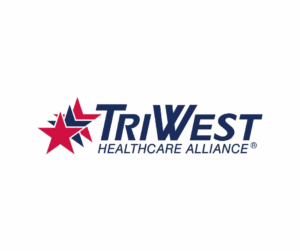 For military veterans, the center coordinates with TriWest and community-care networks to secure authorization for trauma-informed treatment, medication-assisted care, and ongoing mental-health support.
For military veterans, the center coordinates with TriWest and community-care networks to secure authorization for trauma-informed treatment, medication-assisted care, and ongoing mental-health support.
Our case managers roll up their sleeves for every veteran—handling the paperwork, lining up rides, and untangling service-connected disability benefits—so red tape and budget worries never stand between you and the evidence-based care you’ve earned.
Reaching out for drug treatment in Louisville services sets a streamlined process in motion. During a brief phone intake, an admissions coordinator gathers basic health history and verifies insurance or outlines self-pay options.
A same- or next-day in-person assessment follows, where licensed clinicians conduct a bio-psycho-social evaluation, review medications, and screen for co-occurring disorders.
Together, you build a personalized schedule complete with therapy times, psychiatrist visits, and medication-assisted treatment if appropriate. You’ll receive orientation materials, a list of what to bring, and access to the patient portal for secure messaging. By the time you arrive for day one, logistics are settled so that you can focus solely on healing.
Progress at Louisville Addiction Center is measured, shared, and continually refined. Each week, the clinical team reviews attendance, drug-screen results, and standardized symptom scales covering cravings, mood stability, and sleep quality to spot gains or emerging challenges early.
Therapists log goal completions, while psychiatrists adjust medication plans based on side-effect profiles and efficacy.
Families who have signed consent forms receive concise updates, keeping support networks informed without breaching privacy.

Among the many drug rehab facilities in Kentucky, Louisville Addiction Center stands out for its licensed, master-level clinicians, central Louisville campus, and complete continuum of care. Clients can move seamlessly between PHP, IOP, Outpatient, and alumni programming without switching providers or losing momentum.
Weekly outcome reviews, medication oversight, and family updates keep progress transparent. An active alumni community hosts support meetings and sober events, giving graduates real-world accountability and connection long after formal treatment ends.
Hear directly from those who have walked the path to recovery. Our patients’ stories highlight the compassionate care, effective programs, and life-changing support they’ve experienced. Let their journeys inspire you as you take your first steps toward healing.
Most clients complete thirty days of intensive work, then taper through outpatient and aftercare over two to four additional months.
Louisville Addiction Center refers to partner hospitals for medical detox, then manages discomfort with physician-led taper plans and counseling.
Admissions staff verify benefits in minutes and outline exact co-pays or coinsurance before treatment begins—no surprise invoices.
All MAT options are FDA-approved, overseen by a staff psychiatrist, and paired with therapy for balanced, evidence-based recovery.
The center follows HIPAA standards, uses encrypted records, and releases information only with written client consent.
Yes—telehealth is offered for individual counseling and medication checks when in-person attendance is impractical.
Alumni can re-enter drug rehab programs in Louisville, KY, programs quickly, often within 24 hours, and receive an updated plan based on current needs.
Ready to break free?
Call or email to start drug treatment. Louisville residents trust. Same-day assessments, evening sessions, and transportation guidance mean you can begin healing today—no long waits, no hidden fees, just expert care. Our admissions team confirms benefits in minutes and builds a personalized schedule around work or family responsibilities, so nothing stands between you and recovery.


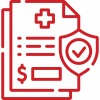

Get Family Support Now
We understand addiction affects the whole family. Our comprehensive family program helps rebuild trust and restore relationships.
Weekly Family Therapy Sessions
Educational Workshops
Support Groups
Communication Skills Training

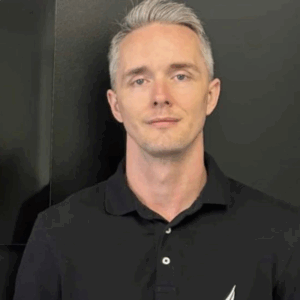
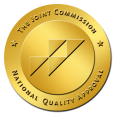
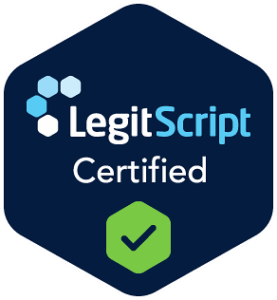
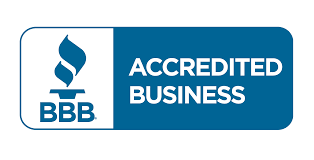


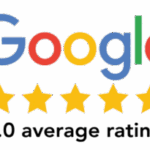

Centers for Disease Control and Prevention. (2023, June 15). Alcohol and public health: Alcohol-related disease impact (ARDI). https://www.cdc.gov/alcohol/index.htm
National Institute on Drug Abuse. (2023, September). Overview of treatment for substance use disorders. U.S. Department of Health and Human Services, National Institutes of Health. https://nida.nih.gov/publications/drugfacts/treatment-statistics
Substance Abuse and Mental Health Services Administration. (2022). Key substance use and mental health indicators in the United States: Results from the 2021 National Survey on Drug Use and Health. https://www.samhsa.gov/data/report/2021-nsduh-annual-national-report
Substance Abuse and Mental Health Services Administration. (2023). National survey of substance abuse treatment services (N-SSATS): 2023 state profile report (Kentucky). https://www.samhsa.gov/data/sites/default/files/reports/state_profiles/KY_2023_NSSATS.pdf
World Health Organization. (2022). Guidelines for the identification and management of substance use and substance use disorders in primary care. World Health Organization. https://www.who.int/publications/i/item/9789241550649
Volkow, N. D., & Koob, G. (2015). Brain disease model of addiction: Why it matters. The New England Journal of Medicine, 373(4), 391–393. https://doi.org/10.1056/NEJMp1508511
McLellan, A. T., Lewis, D. C., O’Brien, C. P., & Kleber, H. D. (2000). Drug dependence, a chronic medical illness: Implications for treatment, insurance, and outcomes evaluation. JAMA, 284(13), 1689–1695. https://doi.org/10.1001/jama.284.13.1689









Get Family Support Now
We understand addiction affects the whole family. Our comprehensive family program helps rebuild trust and restore relationships.
Weekly Family Therapy Sessions
Educational Workshops
Support Groups
Communication Skills Training


Hear directly from those who have walked the path to recovery. Our patients’ stories highlight the compassionate care, effective programs, and life-changing support they’ve experienced. Let their journeys inspire you as you take your first steps toward healing.
Louisville Addiction Center is helping people in Kentucky overcome addiction and mental health challenges.

















